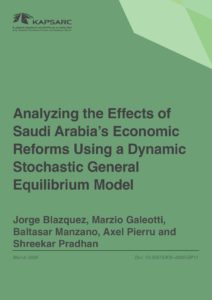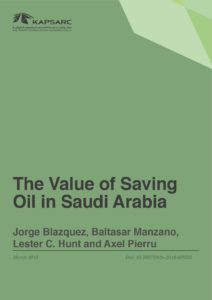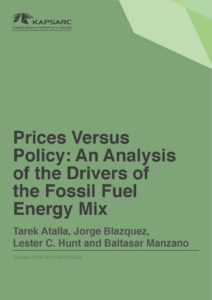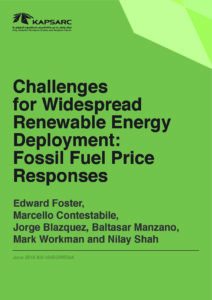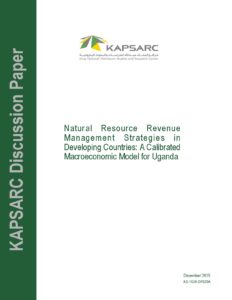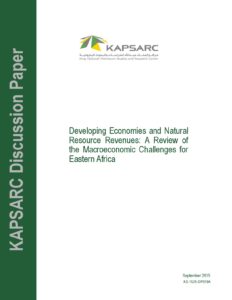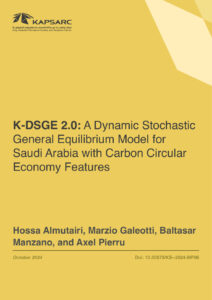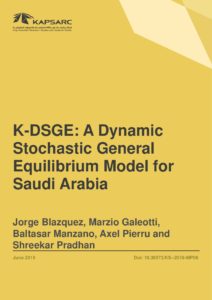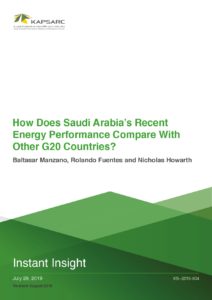Baltasar is an associate professor of economics at the University of Vigo and has been a visiting researcher at KAPSARC since 2014. From 2005 to 2009, he served as an economic advisor to the president of Galicia. Baltasar has a Ph.D. in economics from the Universidad Complutense, Madrid and has published extensively in academic journals, mainly focusing on the intersection of macroeconomics and energy.
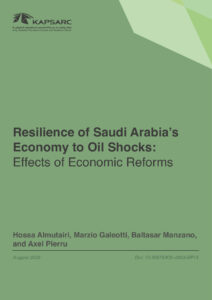
Resilience of Saudi Arabia’s Economy to Oil Shocks: Effects of Economic Reforms
We assess the extent to which the implementation of Saudi Vision 2030 policies enhances the Saudi economy’s resilience to oil price and production shocks, and to the productivity of tradable and non-tradable goods. We extend Blazquez et al.’s (2021) dynamic stochastic general equilibrium model to capture the country’s economic diversification policies and build a resilience index based on impulse responses to shocks.
23rd September 2022
